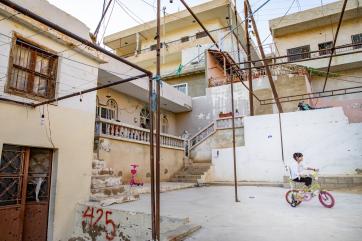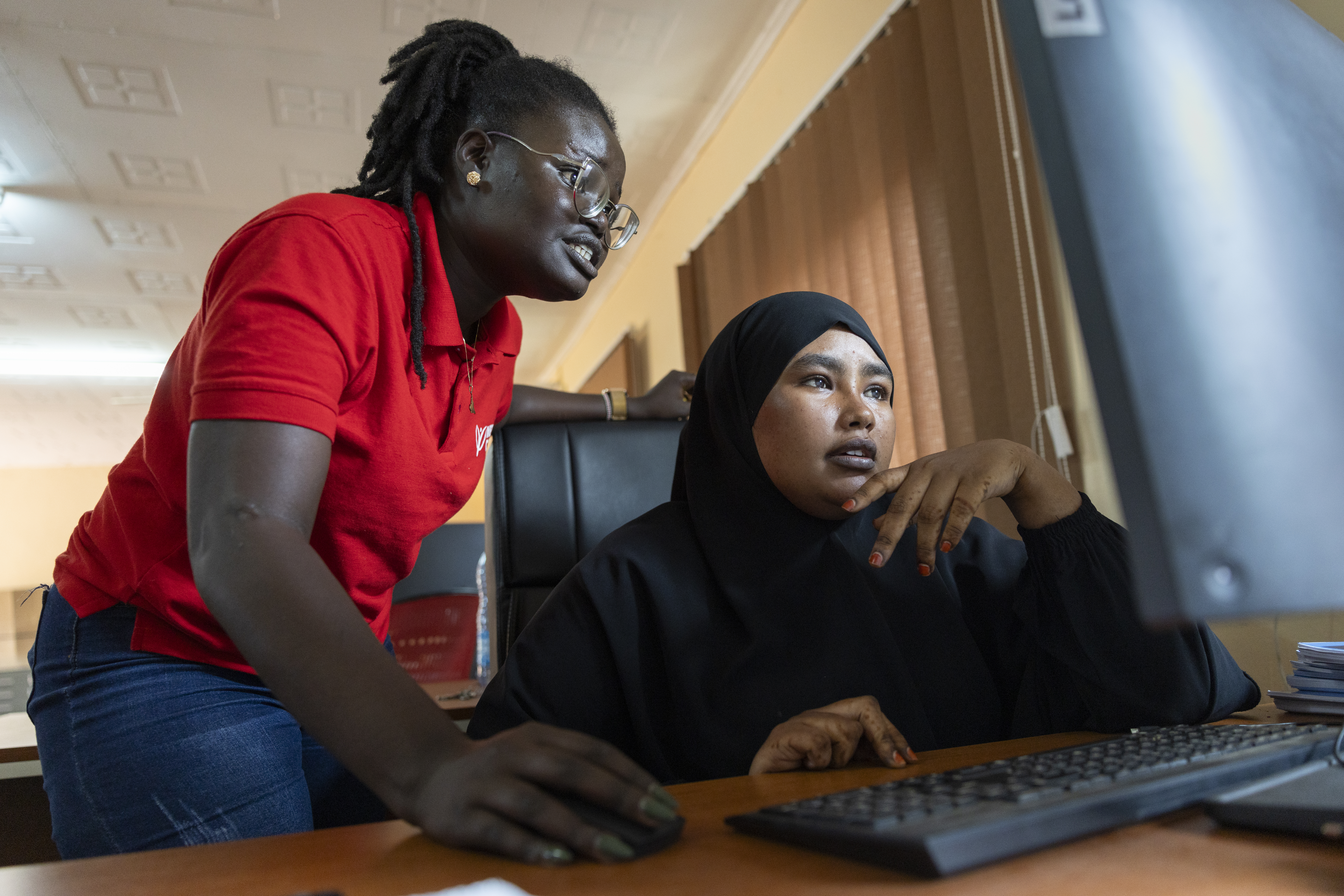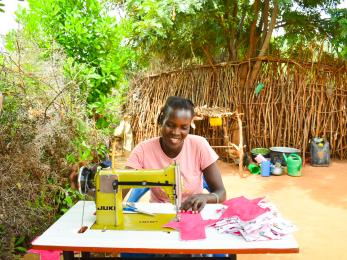How a playground helped Farat find her voice

The last time Farat saw her husband, he was going home.
Life in Homs during Syria’s war had twisted the peaceful life they knew into a series of grueling life-or-death decisions. As the sounds of gunfire inched closer, they had to decide how long they could stay. With no jobs, they had to decide how they would provide for their children. And when Farat’s husband left to find work in Lebanon, she had to decide when she would gather her three daughters — including the 4-month old baby she had just delivered — and risk the journey over the border to join him.
Farat and her daughters fled from Syria to Lebanon in 2013, part of the 1.5 million Syrians who moved there in search of safety. But like so many others, they found that safety in a new country came at the cost of the things they needed to build a life: a school for her daughters, the support of friends and family, and secure jobs that would provide for their family.
Farat’s husband had come to Lebanon as a carpenter, but the work he found wasn’t enough to provide for their family. And so with no other options, the two of them decided he should go back to Syria alone to sell their home in Homs and return with the money.
It was the last time she saw him.
“My husband thought that if he could go back to Homs to sell the house there and bring the money for his family it could improve our situation,” she says. “Unfortunately, he did not come back. He was lost.”

Five years later, Farat and her daughters — Hind, Zekra and Razane — have settled in Lebanon, where the three girls attend school and live in a quiet house in the shadow of Lebanon’s mountains. The longer they stay here, Farat says, the less her daughters will remember about the things they lost: a father, a country, and the life they had built there.
As it became clear they wouldn’t soon return home, it fell to Farat to provide for them. Farat had volunteered for a medical nonprofit in Lebanon when she heard about Mercy Corps and submitted an application for a spot in a local cash-for-work program. Soon she was attending trainings that brought Syrians and Lebanese together to nominate a local project to rehabilitate.
The group decided on a school playground. Shortly after, Farat received a call: She was being promoted to supervisor.
“I didn’t know what a supervisor meant,” she says. “I pretended that I understood, but really all I knew was I had been promoted to some extent. I called my cousin to explain it to me.”


"[The project] made me very strong," Farat says. "In Syria, I had no work experience. I had a fragile and weak personality. At the beginning of the training, they tried to get everything inside of me out and help me express myself. Then, when they asked us to present projects, they gave each of us a topic to study. When we presented our studies they were very attentive to every detail. I felt that I introduced something important."
“The work was great. There was no discrimination and everyone was treated equally. They cared about everyone and we were all satisfied and happy," she says.

Thanks to the program, Farat’s community now has a safe place to play, and Farat found a way to support her family. But the leadership training she received as supervisor benefited her in another way, she says: as a mother.
It gave her the confidence to be an example to her daughters — to talk about what they had been through together, to cope with their new life, and to remember the place they came from: just over the mountains, and a world away.
“I told my kids that Syria is the most beautiful country in the world,” she says. “It was our homeland.”


